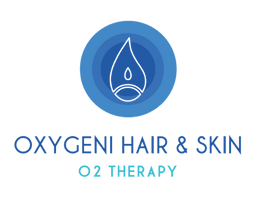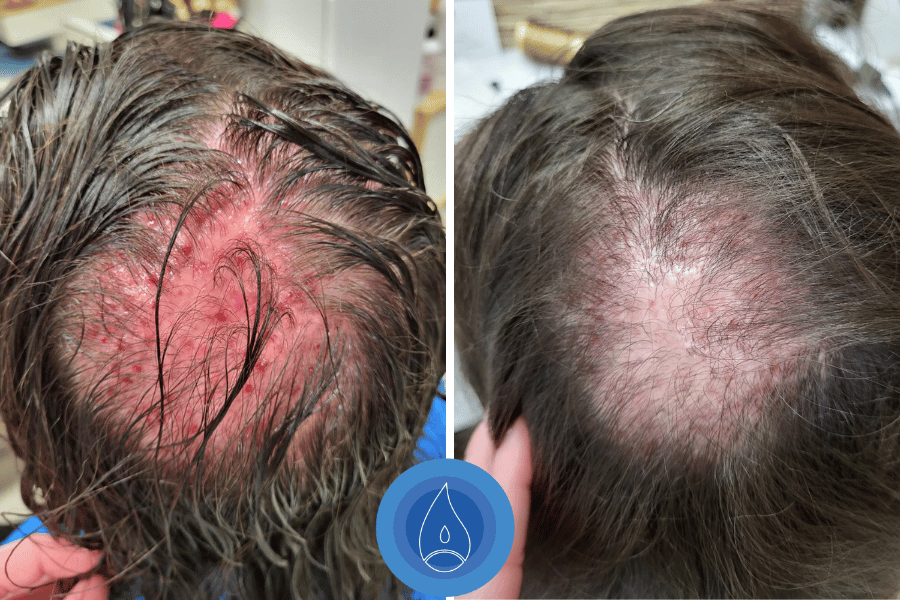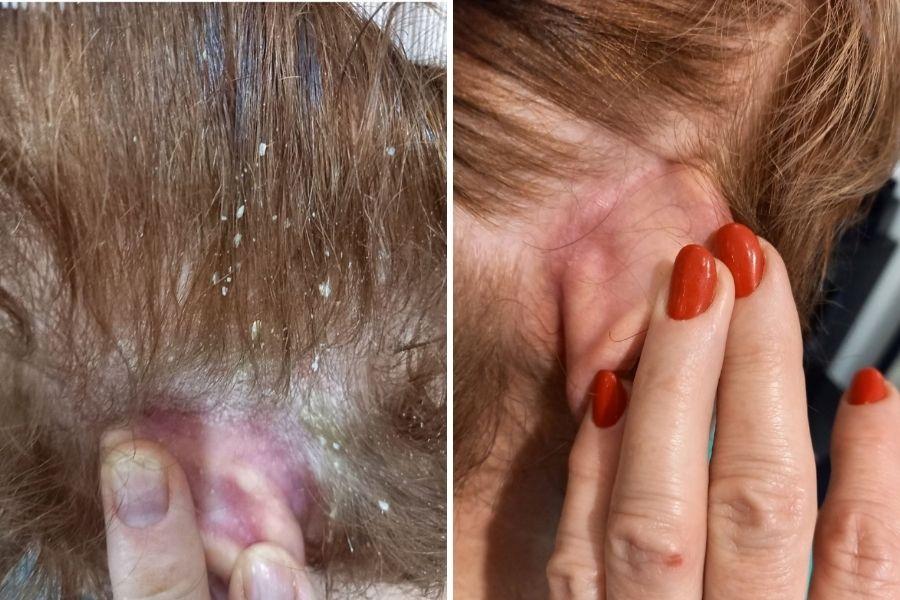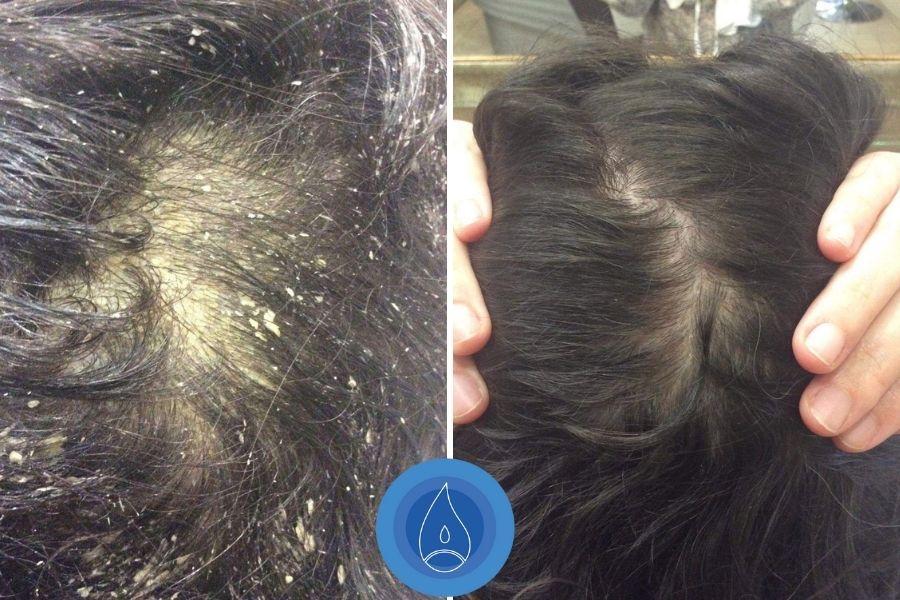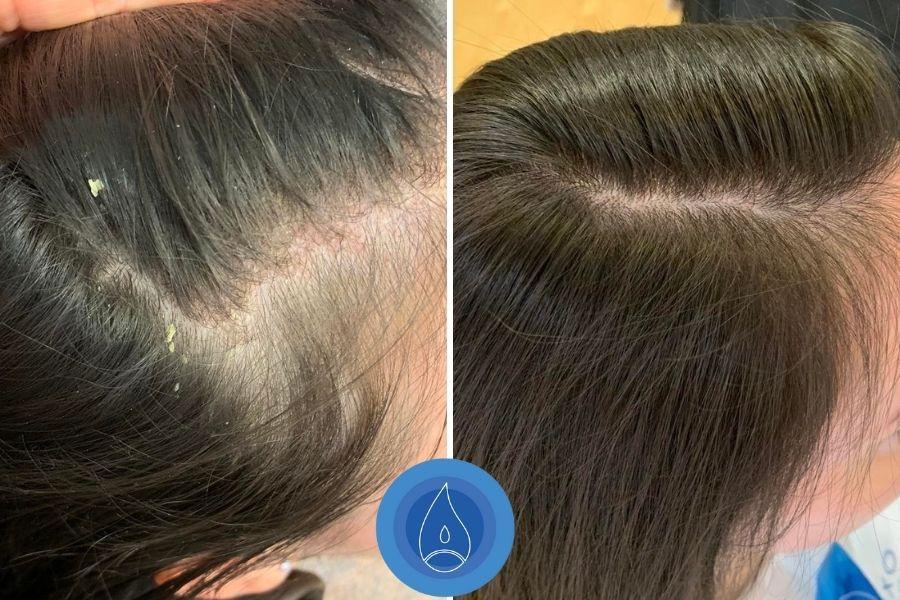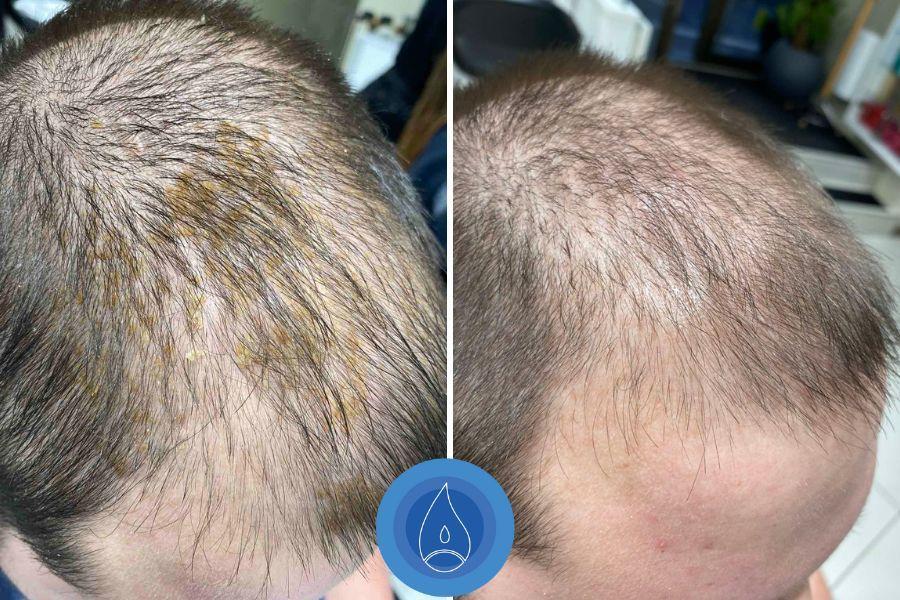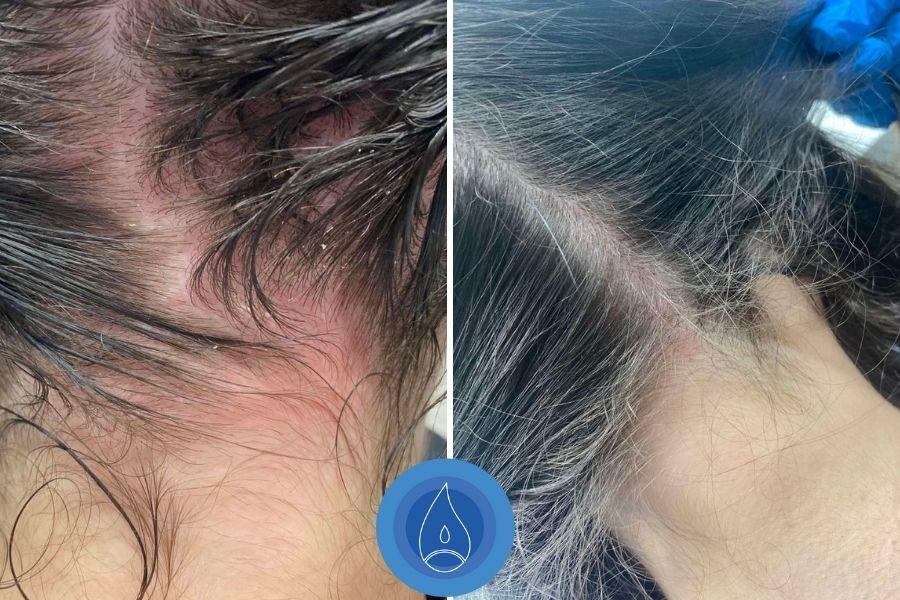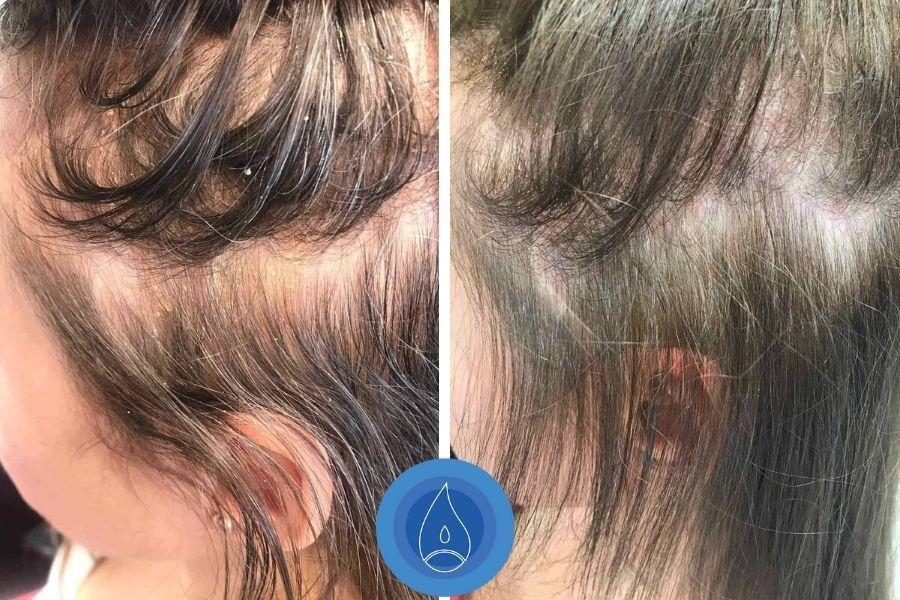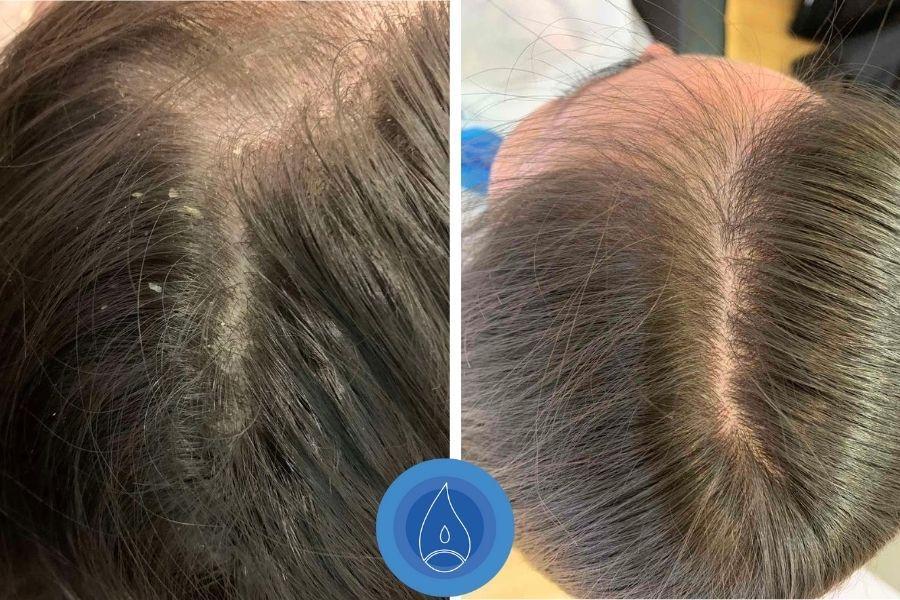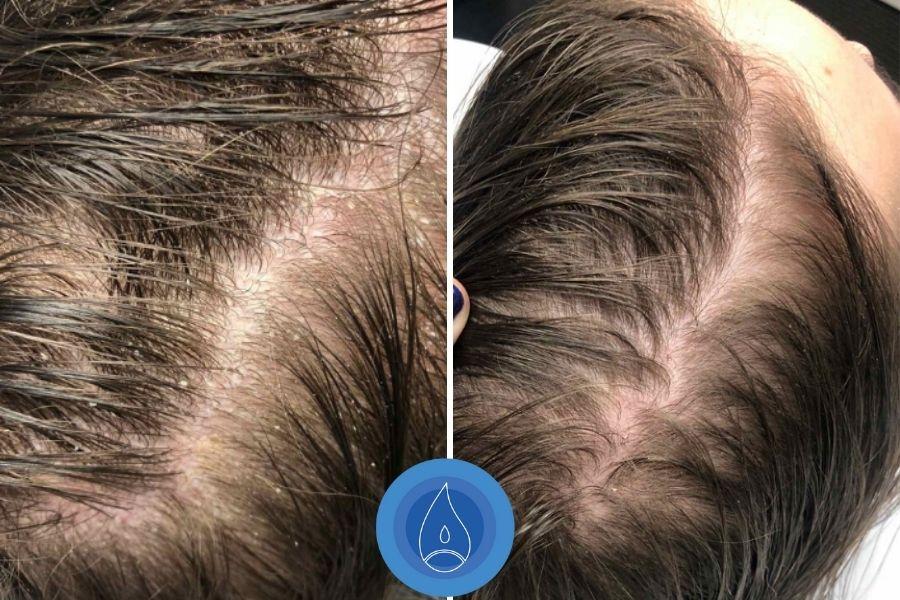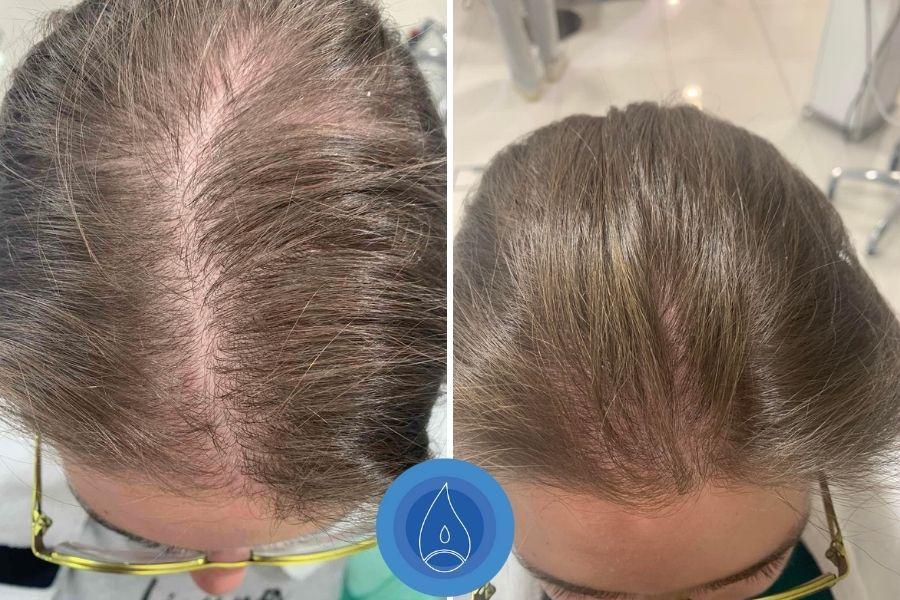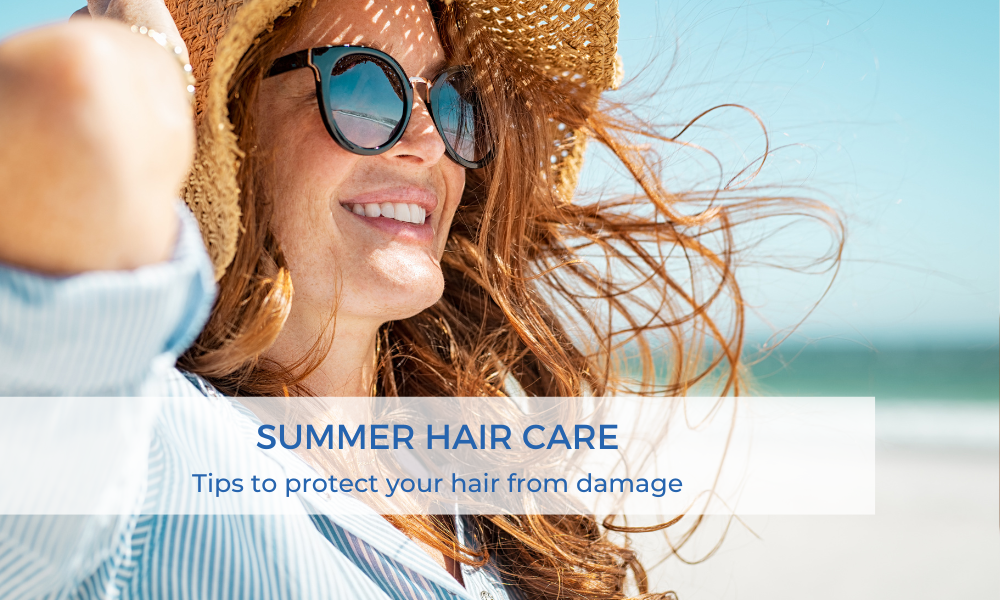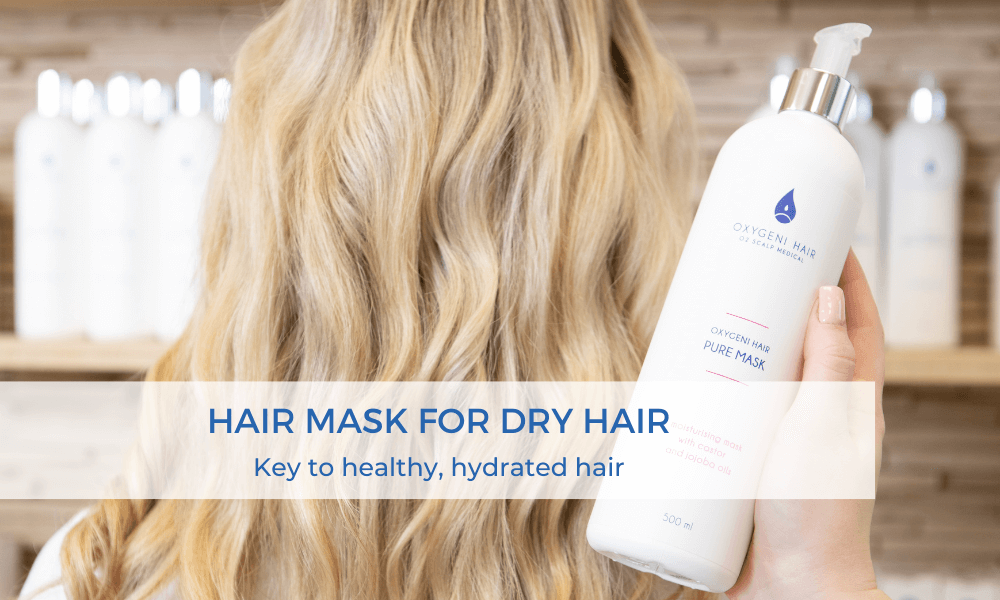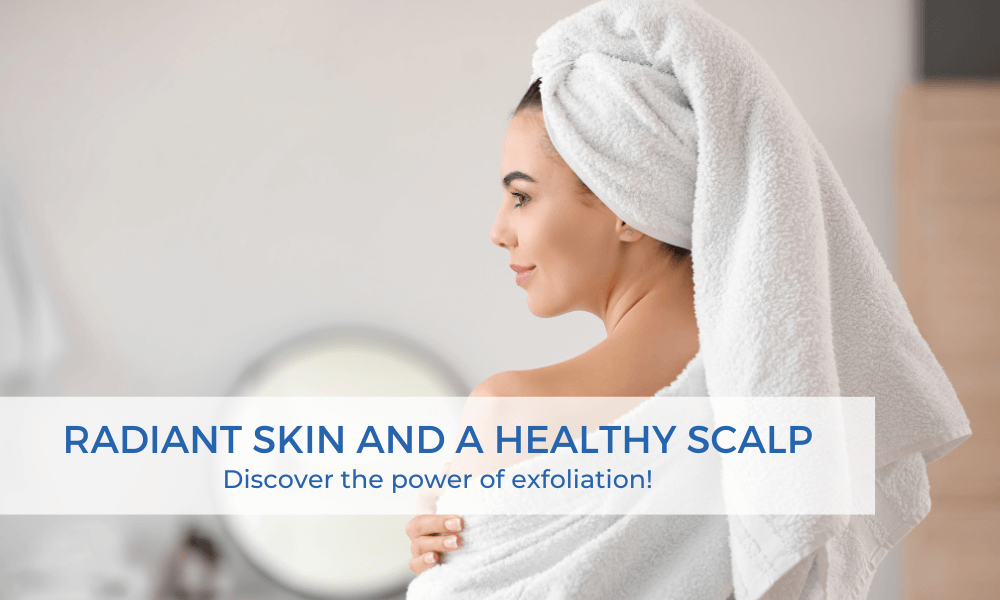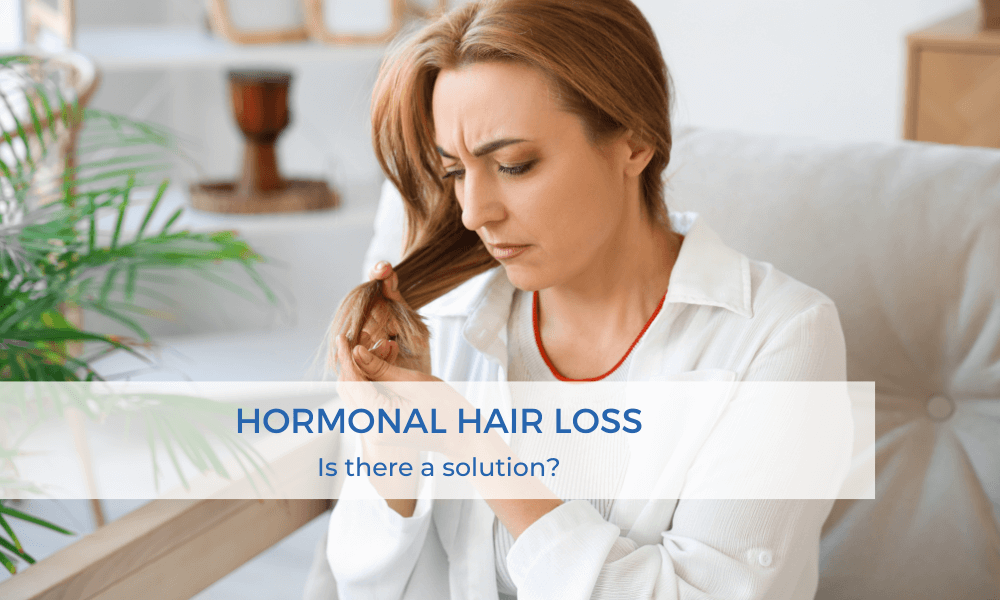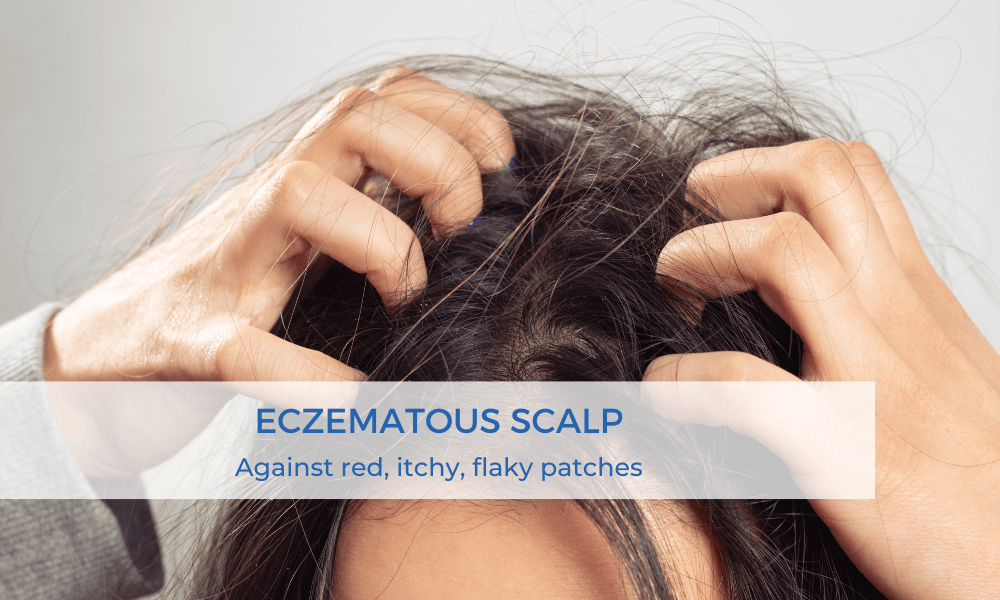
ECZEMATOUS SCALP - AGAINST RED, ITCHY, FLAKY PATCHES
The scalp can itch due to many factors, making everyday life miserable. However, if your skin initially reddens, followed by the development of itchy small blisters, and after scratching you notice small sores, scabs, or flaking, you are likely dealing with eczema of the scalp. Eczema, which involves inflammation of the skin, affects not only easily visible body parts but also the scalp.
WHAT IS ECZEMATOUS SCALP AND WHAT ARE ITS TRIGGERS?
Eczema is a common skin condition that can appear in acute and chronic forms, often attributed to immune system dysfunctions. The triggers for eczema can include immune issues as well as external and internal factors. In severe cases, eczema can become a chronic, long-lasting condition that can manifest on any area of the skin, but it is particularly common in areas with skin folds (e.g., elbows, hands, knees). Patients exhibit patches on their bodies, and these patches vary in intensity in producing skin inflammation and other symptoms of eczema. It’s important to emphasize that eczema is not contagious. Besides itching, it can cause very dry, inflamed, flaky skin that may appear brown, purple, or gray depending on the skin tone, which can even lead to hair loss. Read more about eczema occurring on the skin!
In addition to eczema, there may be several reasons why the scalp is dry and itchy (e.g., psoriasis, fungal infections, ringworm, head lice, etc.), so it is crucial to undergo a scalp diagnosis with an appropriate specialist as soon as possible. At Oxygeni Hair oxygen therapy open days, our trichologists provide free microscopic and manual hair and scalp diagnostics to determine the exact problem.
SYMPTOMS OF ECZEMATOUS SCALP
Its main symptoms include very dry skin, reddish or brownish patches on the skin, and intense itching, which worsens especially at night. Other characteristic signs include sensitive or swollen skin, flakes on clothing or shoulders after scratching, small bumps that may leak fluid, and thickened or cracked skin.
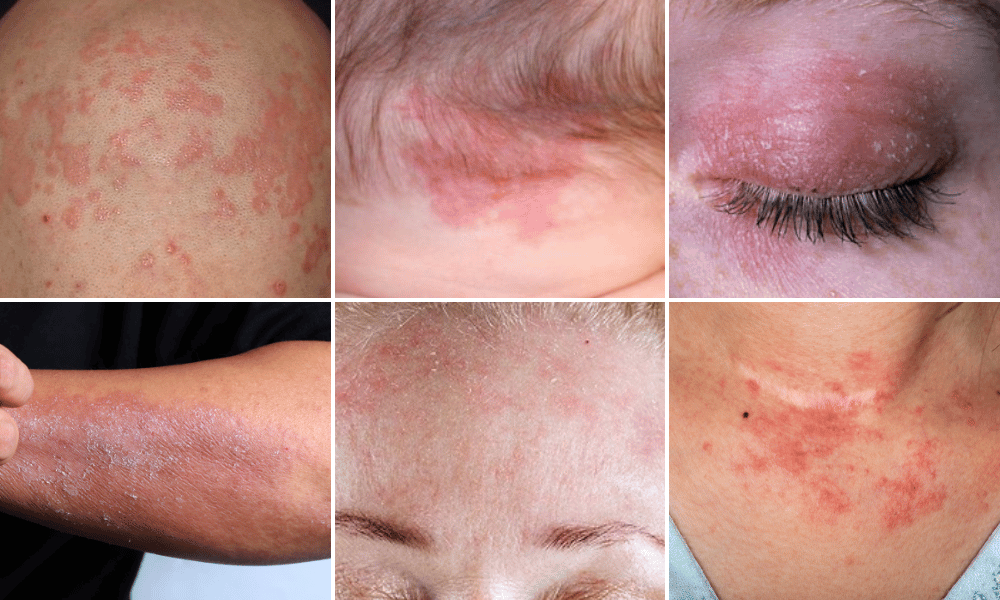
DANDRUFF OR ECZEMATOUS SCALP?
There are surprisingly many conditions that can cause an itchy scalp, so it’s important to know exactly what you’re dealing with. For more detailed information about the causes and treatment of itchy scalp, click here. The most common type of eczema on the scalp is seborrheic dermatitis, and the most frequently occurring uncomfortable symptom is dandruff. Seborrheic dermatitis is a chronic inflammatory condition caused by overproduction of natural oils by the sebaceous glands of the scalp. People generally distinguish between eczema and dandruff based on visible signs of inflammation. Both eczema and dandruff can cause flaky skin and itching, but only eczema typically causes inflamed patches of skin.
PSORIASIS OR ECZEMATOUS SCALP?
Psoriasis and eczema cause red, itchy patches of skin, but they manifest slightly differently. Unlike eczema, psoriasis is an autoimmune condition, and the inflamed patches of skin caused by psoriasis are typically thick and scaly, and may appear grayish in color. These thickened patches, called “plaques,” can be triggered, for example, by stress, bacterial or viral infections.
Neither condition is contagious! A common factor in alleviating symptoms is the use of thermal water, saltwater, and sunlight. Adopting a suitable, conscious lifestyle and healthy diet can promote improvement, and external treatments can be applied in both cases. Significant results can be achieved with oxygen therapy for both eczema and psoriasis.
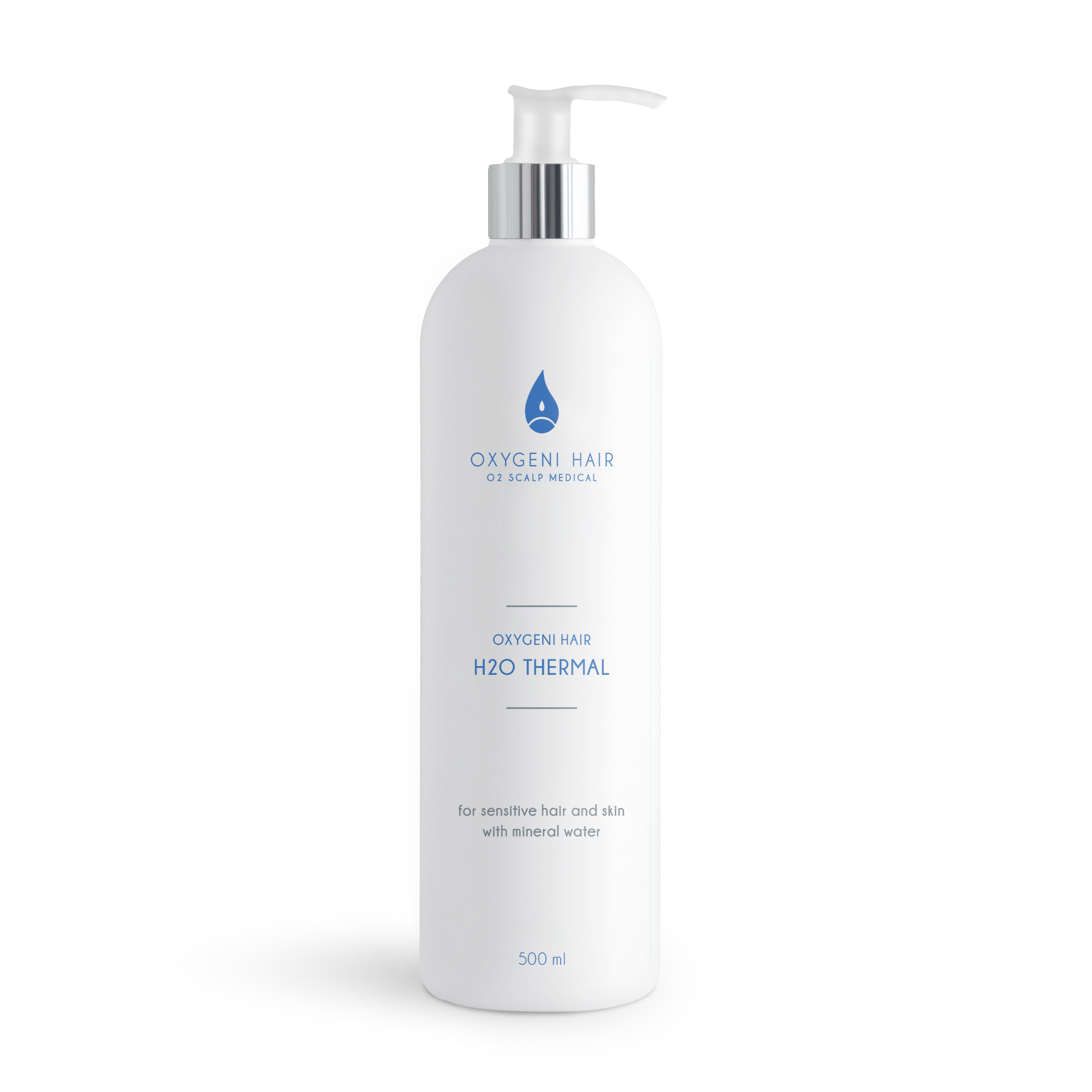
H2O Thermal
Oxygeni Hair H2O Thermal thermal water uniquely delivers a large amount of minerals and vitamins to the skin and hair. This contributes to the health and vitality of the skin and hair. It restores the barrier layer of the scalp, soothes sensitive skin, protects cells from the harmful effects of free radicals thanks to its antioxidant effect, helps in the formation of epidermal cells, and stimulates collagen production.
WHAT COULD BE THE CAUSES OF ECZEMATOUS SCALP?
NICKEL ALLERGY
Nickel allergy sufferers typically experience skin reactions after contact with certain metals. These may include jewelry, electronic devices, buttons, and zippers. In some cases, people allergic to nickel may develop eczema symptoms after contact with the metal. Nickel allergy can also cause dyshidrotic eczema episodes, which typically affect the hands and feet. Nickel is also present in some common foods. High-nickel foods include cashews, chocolate, cocoa powder, licorice, shellfish, soybeans, soy sauce, tofu.
BIRCH POLLEN SENSITIVITY
Some people sensitive to birch pollen may react to certain foods. This reaction is called oral allergy syndrome and can exacerbate symptoms in some people with eczema. This sensitivity is more likely to affect children than adults with eczema. People with birch pollen sensitivity may react to foods such as apples, carrots, celery, hazelnuts, pears.
NUTRITION
Eliminating trigger foods may help some people reduce eczema symptoms. However, removing foods from the diet can result in loss of important nutrients. Nearly 40% of people with eczema may also experience food allergies or intolerances, which should be investigated if suspected. Many types of food can exacerbate eczema, but the most common are cow’s milk, eggs, nuts, and peanuts. Investigating these is essential for managing symptoms.
What can help?
A nutritious diet based on whole foods can have a beneficial effect on the health of the scalp. Anti-inflammatory foods can help improve the symptoms of eczematous scalp.

FISH
Fish is a natural source of omega-3 fatty acids, which can help manage inflammation in the body. Examples of fish high in omega-3 content include salmon, tuna, mackerel, sardines, and herring.
PROBIOTIC FOODS
Some foods naturally contain probiotics, which are bacteria that can promote good gut health. Research suggests that this effect may also help reduce inflammation throughout the body. Probiotic foods include yogurt and sauerkraut.
FOODS RICH IN FLAVONOIDS
Flavonoids are potent anti-inflammatory compounds found in many foods. They are typically present in the peel of colorful fruits and vegetables. Foods rich in flavonoids include tomatoes, red bell peppers, soybeans, berries, and citrus fruits.
TREATMENT OF ECZEMATOUS SCALP
The oxygen therapy helps ensure proper oxygen supply to the cells and hair follicles. The therapy is preceded by a micro-camera scalp examination, where inflammation and issues in the deeper layers of the skin are also visible.
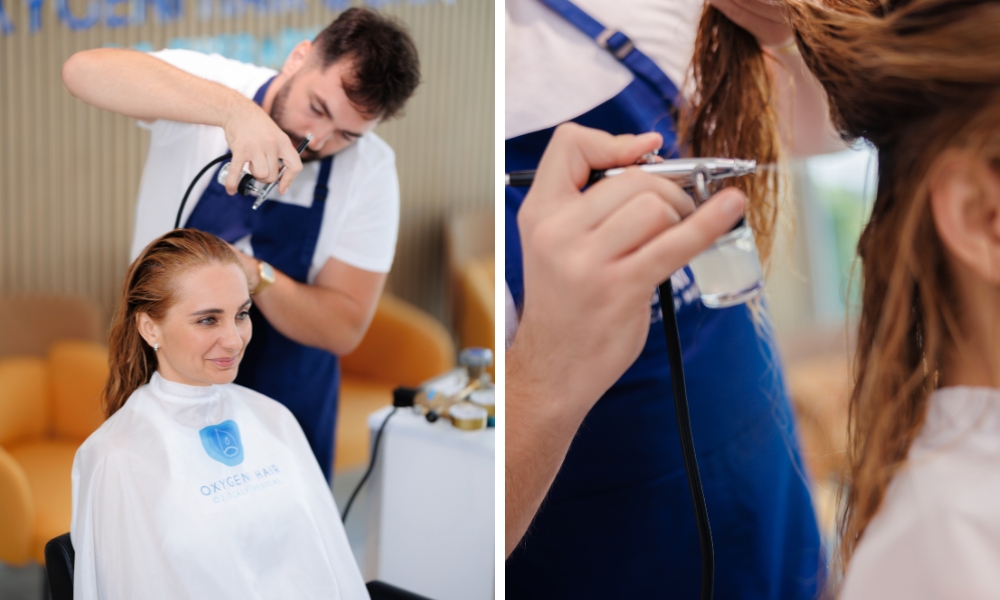
Oxygen therapy can be used for any scalp problem, reducing healing and regeneration time. The effectiveness of the treatment is evidenced by over 500,000 successful scalp treatments, with a 97% visible result rate. Our oxygen therapy treatment is recommended for the treatment of all types of hair and scalp problems, including eczematous scalp, and is also highly recommended for prevention purposes.
RESULTS OF OXYGEN THERAPY
During the therapy, the hair follicles and skin receive proper oxygen, vitamin, and mineral supply, rejuvenating them. The hair follicles become stronger and denser, while the scalp gets rid of impurities and regains its proper pH value. Cosmetic oxygen therapy targets problematic skin areas, whether it’s the chest, face, arms, or legs.
The therapy is recommended for both scalp and skin, as cosmetic oxygen therapy is now available alongside hair care treatments. During the treatment, a complex of valuable vitamins and minerals is delivered to the deepest layers of the skin, where cell metabolism takes place. Oxygen not only ensures cell renewal but also provides essential nutrients for the renewed cell’s functioning. The skin is permeable to gases, so the substances delivered into the skin with oxygen penetrate deeper than with normal application.
CELEBRITIES WHO STRUGGLE WITH ECZEMA
Celebrities are expected to always look their best, but skin conditions spare no one, including eczema.
Although Brad Pitt hasn’t spoken about it himself, his co-star Cate Blanchett revealed that Pitt suffered from eczema while filming “The Curious Case of Benjamin Button.” Adele, on the other hand, mentioned that her eczema flared up when she became a new mother. Actress Elle Fanning doesn’t censor herself on social media platforms, often sharing visibly red-eyed selfies on Instagram. Eyelid eczema, also known as eyelid dermatitis, can affect anyone, but it’s more common in those with a history of atopic dermatitis.
Fighting eczema isn’t easy, but they managed to treat their symptoms. With natural and chemical-free solutions, they were able to maintain healthy skin and hair.
HOME CARE FOR ECZEMATOUS SCALP
Eczema is often triggered or exacerbated by harsh hair or skincare products. Anyone can experience such reactions – with or without eczema. However, if you have eczema, you may be more sensitive to these reactions, and they can trigger eczema symptoms.
For long-term healing, using chemical-free and 100% natural products provides a sustainable solution.
Using chemical-free products reduces intolerances, as their 100% natural ingredients do not irritate the skin and scalp and exert their effects naturally. Using natural products can not only help alleviate symptoms but also prevent them! Oxygeni Hair&Skin products are fragrance-free and non-irritating, offering a perfect solution for alleviating and preventing scalp conditions.
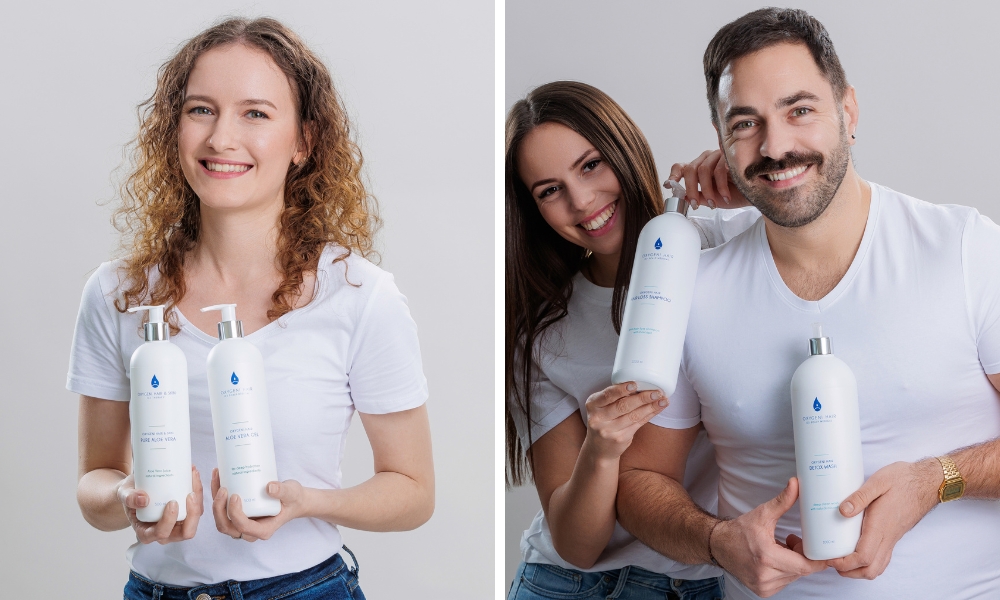
REVIEWS ABOUT THE OXYGEN THERAPY AND THE OXYGENI HAIR PRODUCTS
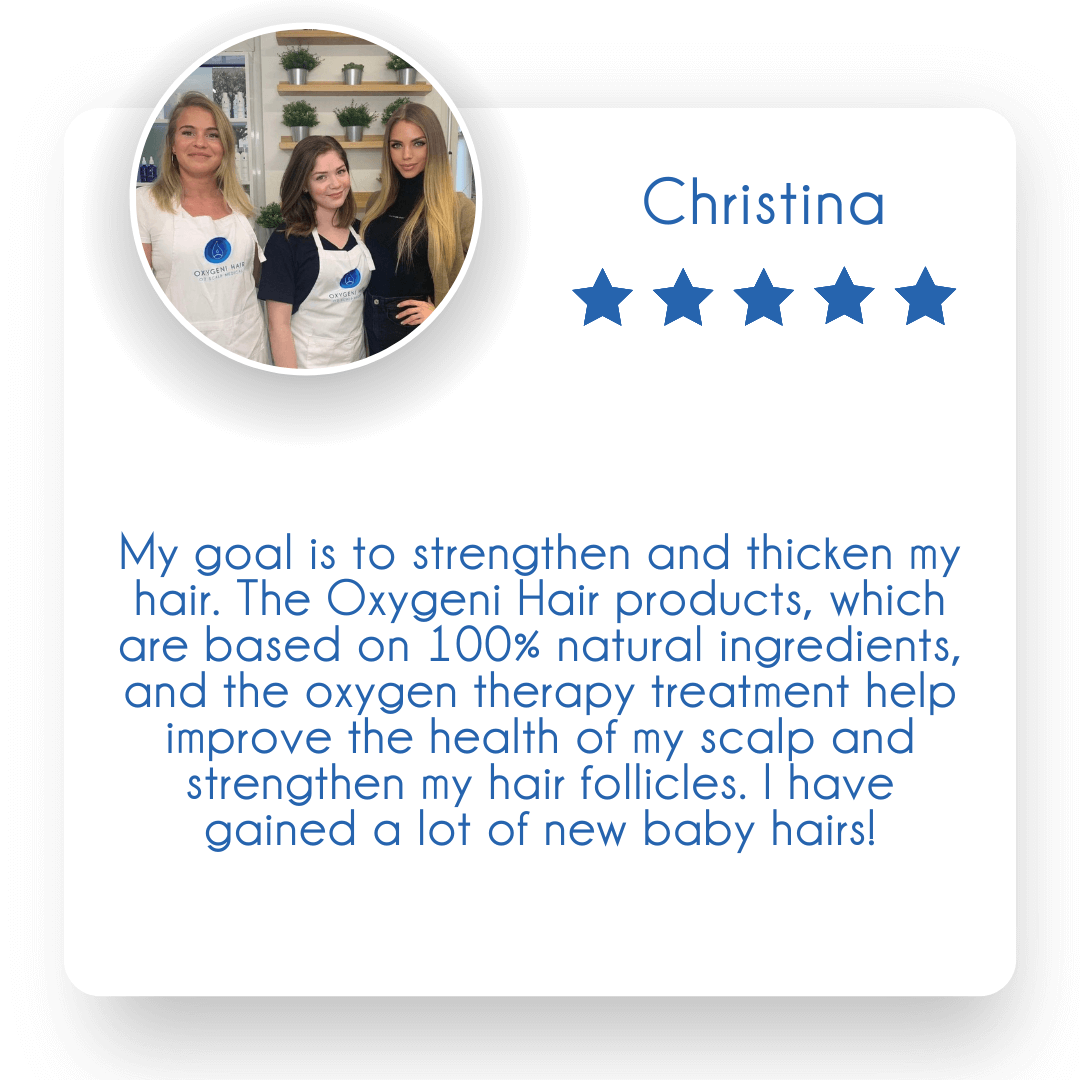

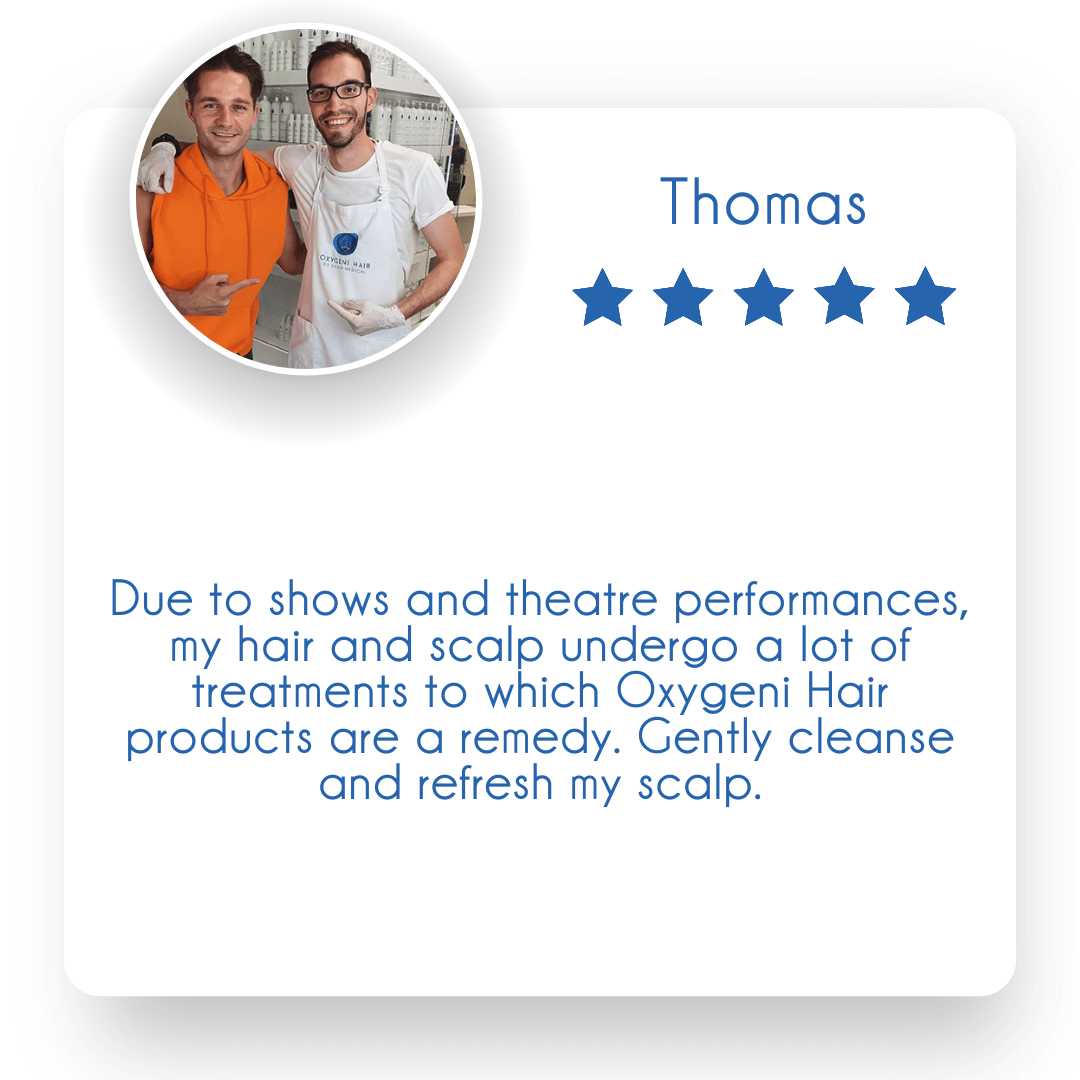
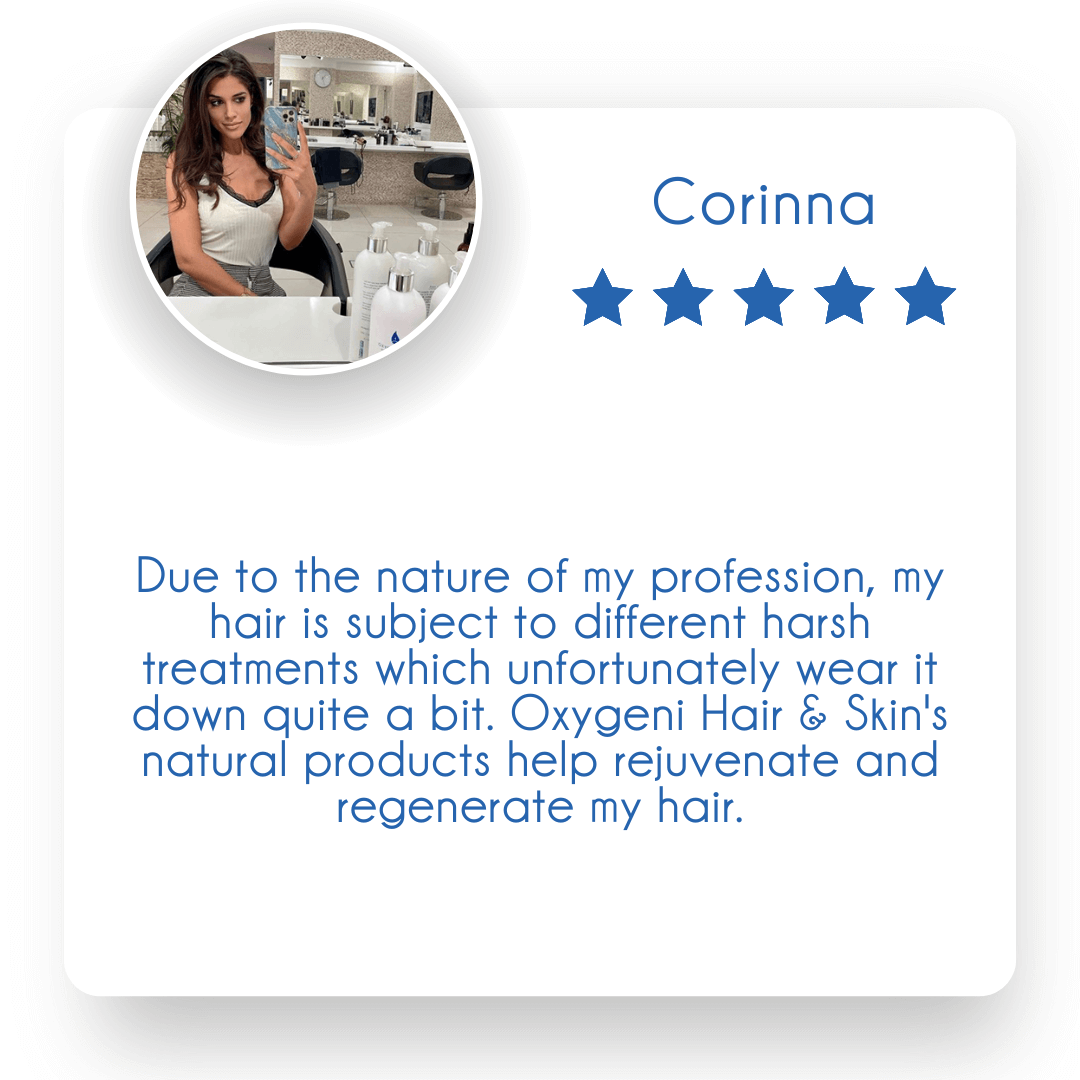
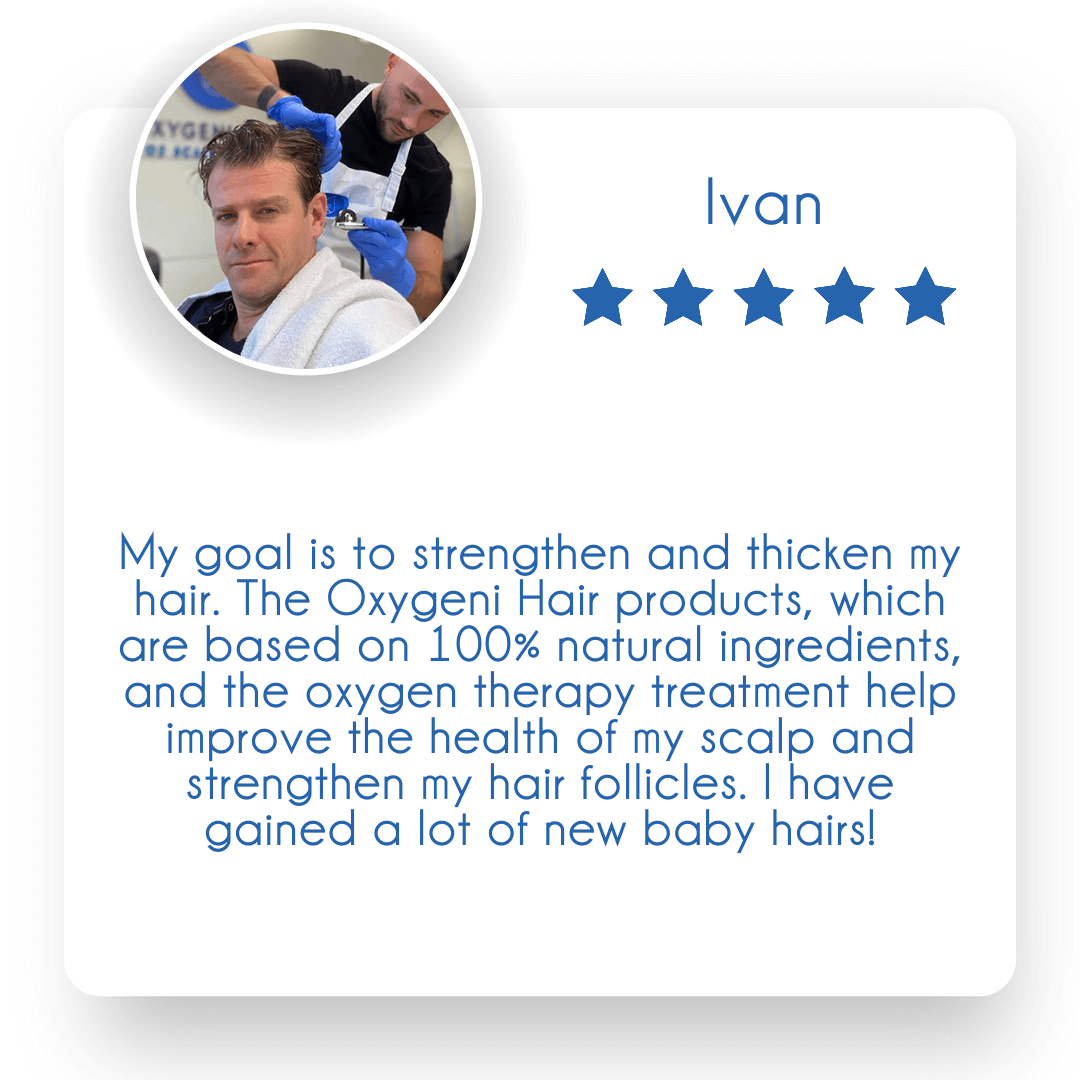
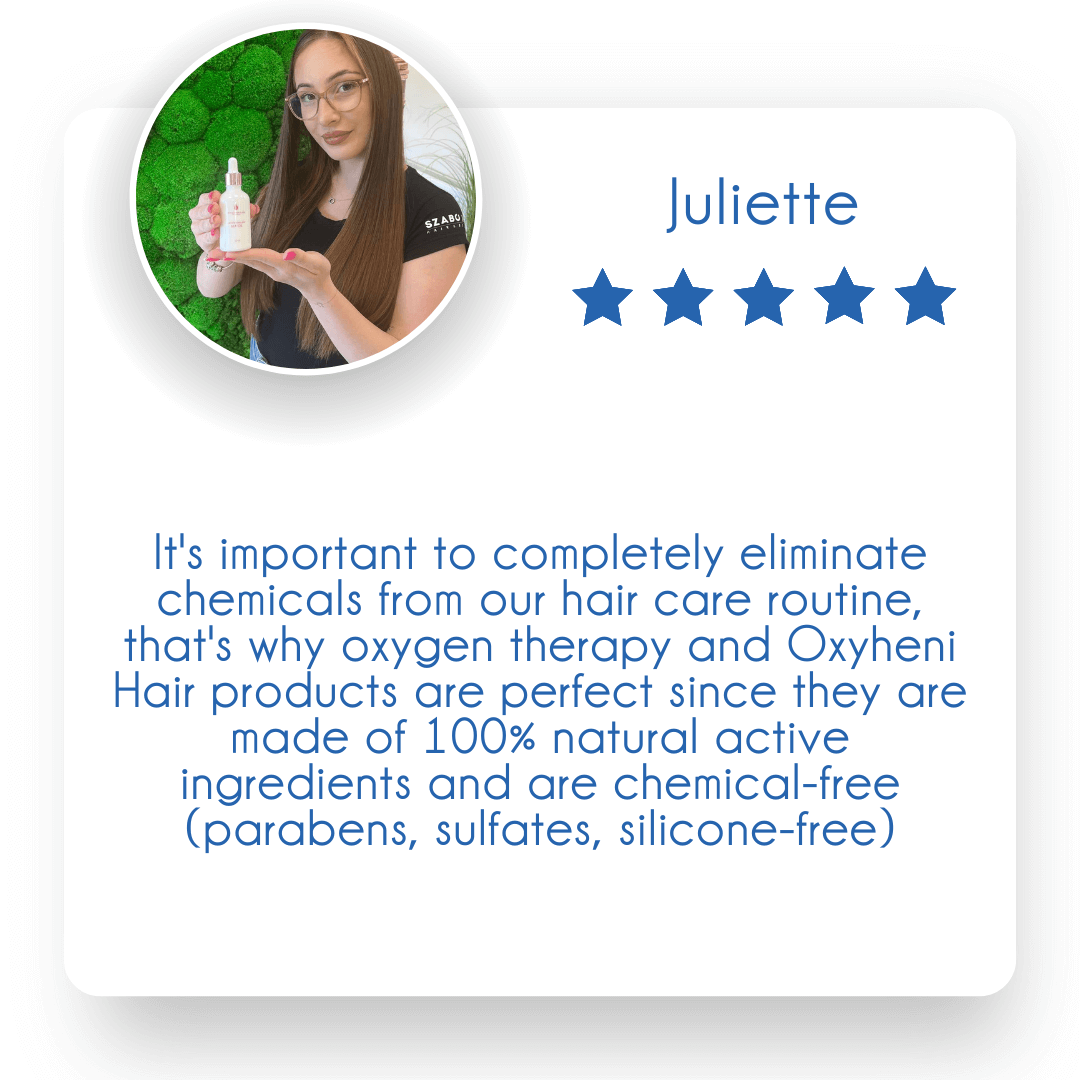
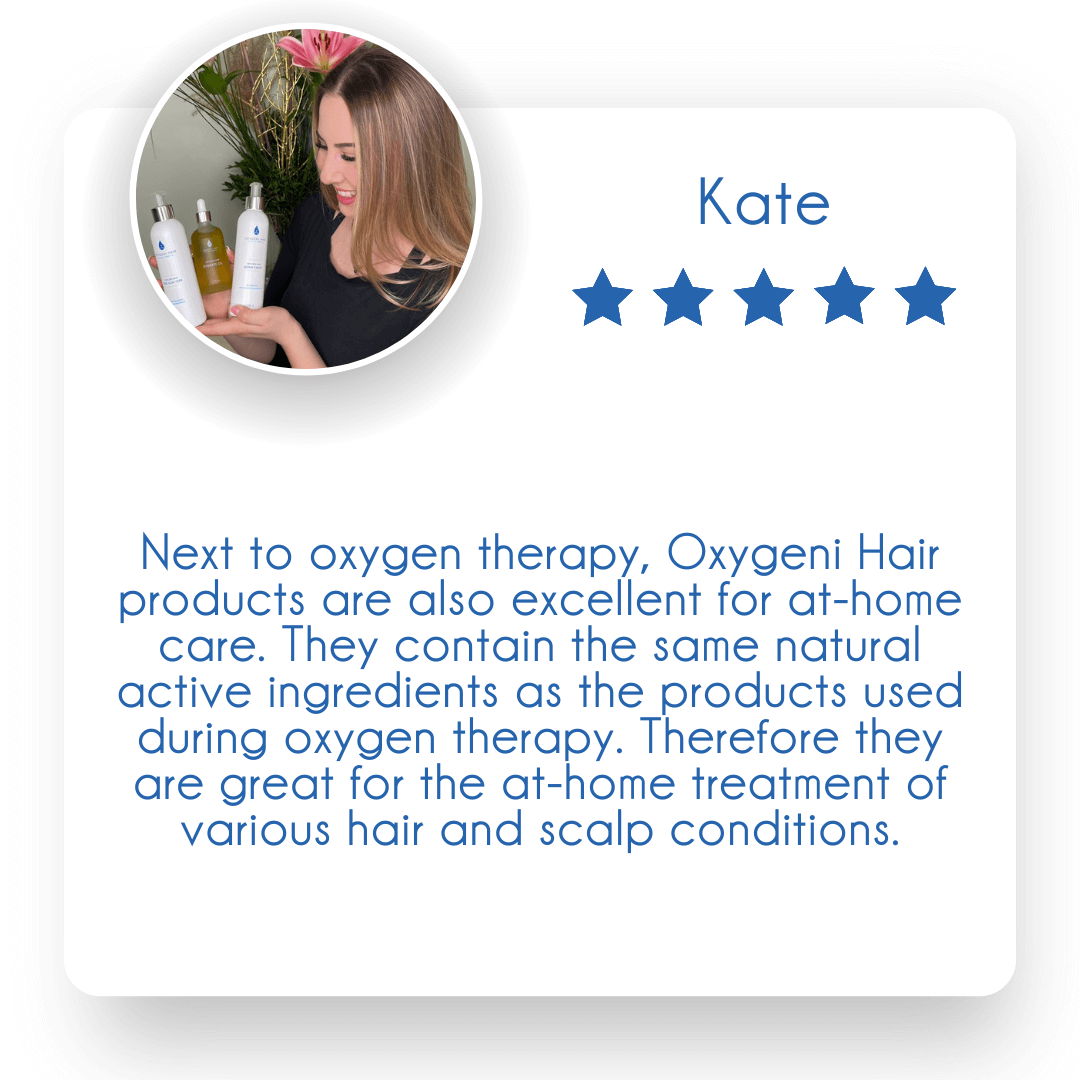
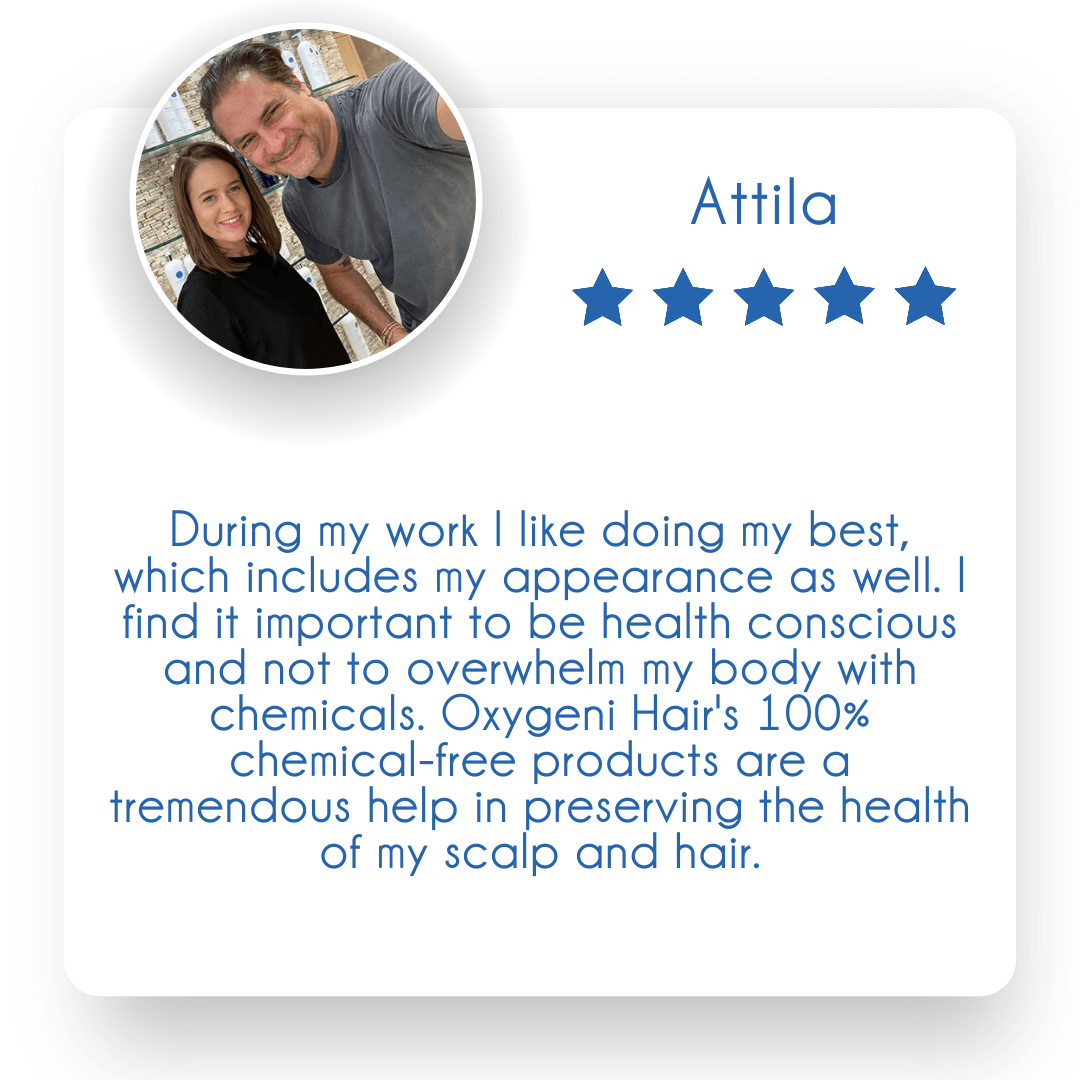
Follow us on our social media platforms!
